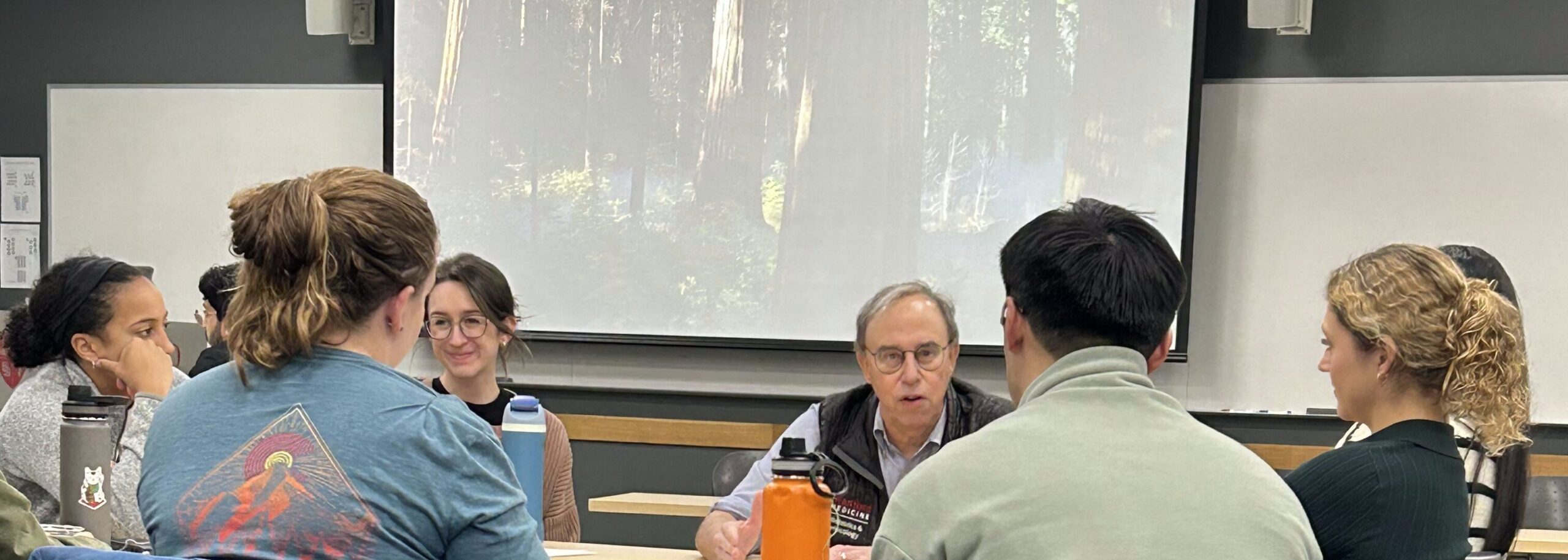Published: 01/15/2025
By Barbara Erny, MD, Adjunct Clinical Associate Professor of Medicine, Stanford, and a co-organizer of the course
Climate change is the biggest health threat of the 21st century, according to the World Health Organization and The Lancet. Recognizing this critical issue, Stanford School of Medicine has taken proactive steps to integrate climate, health, and equity into its preclinical curriculum.
To bridge the gap between preclinical knowledge and clinical practice, members of the Stanford medical community organized a comprehensive session for clerkship students as part of the clerkship course, INDE 297, held in the fall quarter of 2024. The class aimed to provide practical instruction on healthcare sustainability and contextualize climate change impacts within various medical specialties.
The day started with a brief introduction explaining the effects of climate on health and equity, and healthcare’s impact on climate change. We then convened a panel, which discussed:
- Wildfires, air pollution, and allergies, with a focus on pediatric impacts and environmental justice
- Heat and extreme weather events, discussing heat-related illnesses, and the importance of taking an environmental history
- Food systems, exploring the positive impact of plant-based diets on planetary and personal health
- Reproductive health, examining the effects of heat on pregnancy outcomes and the impacts of air pollution
Afterwards, a session on mental health began with a guided meditation to reduce climate anxiety. Then, medical student Angel Zheng interviewed Natalie Lomayesva-Seligman, a fourth-year resident in psychiatry. They addressed climate anxiety and its effects on Gen-Z, as well as other mental health effects of climate change.
The afternoon panel delved into the business and operational aspects of sustainable healthcare, including:
- Disaster preparedness and waste reduction in healthcare settings
- High-value care and energy efficiency in medical practice
- The role of informatics and AI in climate disaster response and patient care
- Venture capital opportunities in wellness and sustainable business
The session concluded with “choose your challenge,” small group discussions led by faculty members, which allowed students to explore specific climate and health challenges in depth. Challenges included “Hurricane Havoc,” “Flip the Switch,” and “Red Alert!” This interactive approach encouraged future physicians to think critically about their role in addressing climate change within their medical practice.
A session called “Community Connect” was the most popular, led by medical student Devon Lee.
At the end of the day, the students shared a lot of positive feedback about the interactions they had with faculty and each other.
As climate change continues to impact human health, medical education must evolve to prepare physicians for these new challenges. By educating our medical trainees, we can foster a generation of physicians aware of climate change’s health impacts and also prepared to advocate for and implement sustainable healthcare practices.
Images courtesy of Meg Tabaka, MD and Barbara Erny, MD

